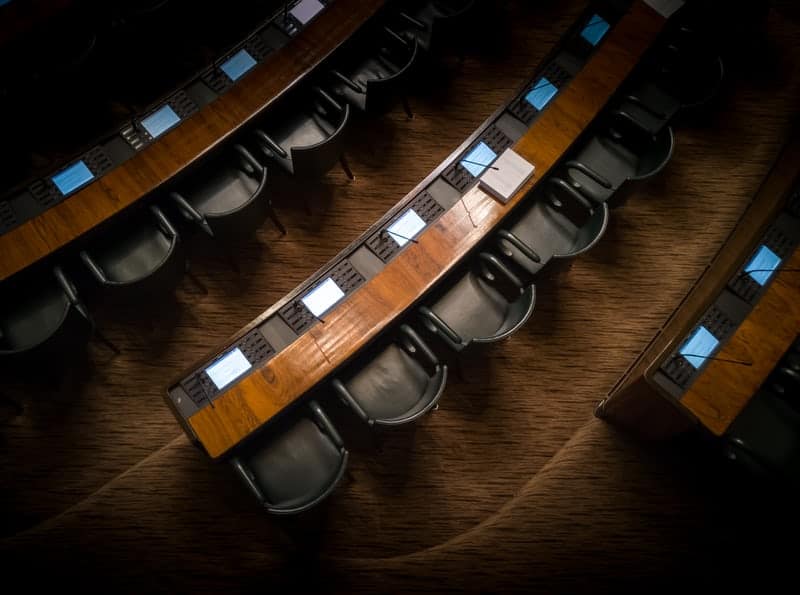
Rund Khayyat is a student at Harvard Law School.
The $600 CARES Act unemployment benefit ends today, leaving millions of Americans in jeopardy. Though Senate Republicans and the White House have insisted that the $600 benefit discourages Americans from working, a new study by Yale economists tells a different story. The study discovered that the expanded jobless benefits, which Congress implemented in March, did not reduce employment. To the contrary, the benefits “neither encouraged layoffs during the pandemic’s onset nor deterred people from returning to work once businesses began reopening.”
In fact, workers receiving larger expansions in unemployment insurance benefits returned to their jobs at similar rates as others. There is also no evidence that more generous benefits disincentivized work at either their implementation, or later, when businesses began to reopen. Instead, other factors have prevented Americans from returning to work — such as a lack of child care, the risk of infection, and the stalling labor market. A June study by the Federal Reserve Bank of Chicago reached similar findings: “Those currently collecting benefits search more than twice as intensely as those who have exhausted their benefits,” the study said. The Yale researchers published their findings as Congressional negotiations over the appropriate level of relief to provide struggling workers have reached an impasse.
The White House is willing to accept a congressional stimulus package that doesn’t shield employers from coronavirus-related legal claims. The flexible position, which two anonymous White House staffers revealed to the Washington Post this week, directly contradicts Senate Majority Leader Mitch McConnell’s weeks-long insistence that any congressional package make it significantly harder for workers and customers to sue employers for coronavirus-related harm. Disagreements over the provision, which Congressional Democrats reject because it would allow employers to endanger vulnerable workers with impunity, has been a major obstacle in the stalled negotiations.
In the wake of widespread protests over racist policing, many of which NBA players famously joined, the NBA and its Players Association (NBPA) have agreed on social justice messages that players could wear on their jerseys in lieu of their last names. When the League returns to the courts on July 30, the players can display the messages during the first four days of the season, after which they can return to only displaying their last names or wear both the social justice messages and their last names on their jerseys.
The Union agreed to 29 messages, including: “Black Lives Matter”; “I Can’t Breathe”; “Justice”; “Peace”; “Equality”; “Say Her Name”; “Anti-Racist”; “Group Economics” and “I Am a Man” — the slogan that the 1968 Memphis sanitation workers’ strike famously used. The slogans agreement follows the NBA and NBPA’s June 24 announcement that they would continue discussing racial justice and prioritize the issue during the season restart.






Daily News & Commentary
Start your day with our roundup of the latest labor developments. See all
July 8
In today’s news and commentary, Apple wins at the Fifth Circuit against the NLRB, Florida enacts a noncompete-friendly law, and complications with the No Tax on Tips in the Big Beautiful Bill. Apple won an appeal overturning a National Labor Relations Board (NLRB) decision that the company violated labor law by coercively questioning an employee […]
July 7
LA economy deals with fallout from ICE raids; a new appeal challenges the NCAA antitrust settlement; and the EPA places dissenting employees on leave.
July 6
Municipal workers in Philadelphia continue to strike; Zohran Mamdani collects union endorsements; UFCW grocery workers in California and Colorado reach tentative agreements.
July 4
The DOL scraps a Biden-era proposed rule to end subminimum wages for disabled workers; millions will lose access to Medicaid and SNAP due to new proof of work requirements; and states step up in the noncompete policy space.
July 3
California compromises with unions on housing; 11th Circuit rules against transgender teacher; Harvard removes hundreds from grad student union.
July 2
Block, Nanda, and Nayak argue that the NLRA is under attack, harming democracy; the EEOC files a motion to dismiss a lawsuit brought by former EEOC Commissioner Jocelyn Samuels; and SEIU Local 1000 strikes an agreement with the State of California to delay the state's return-to-office executive order for state workers.